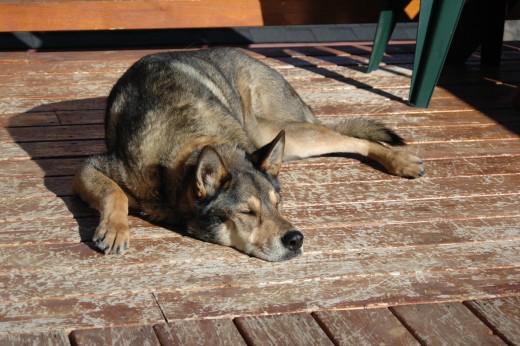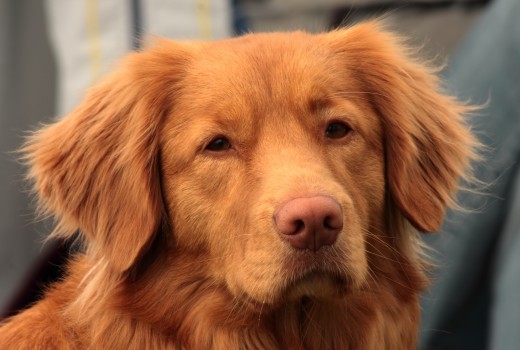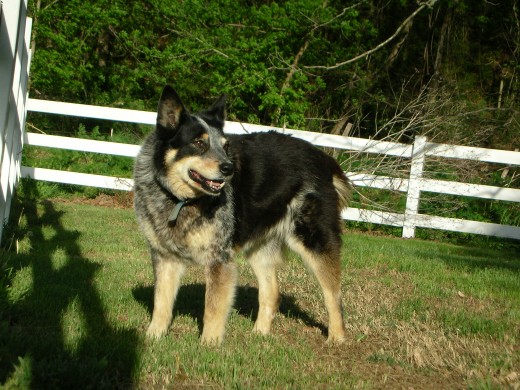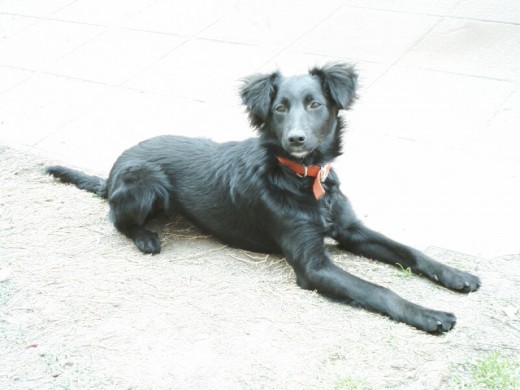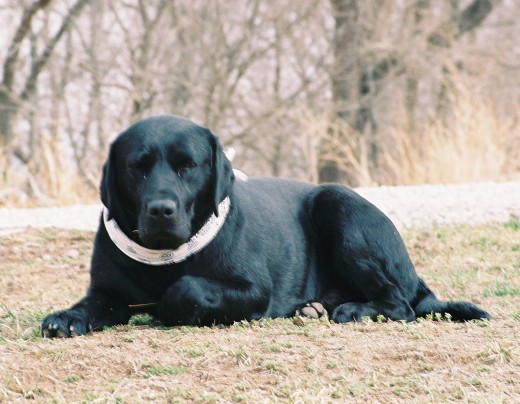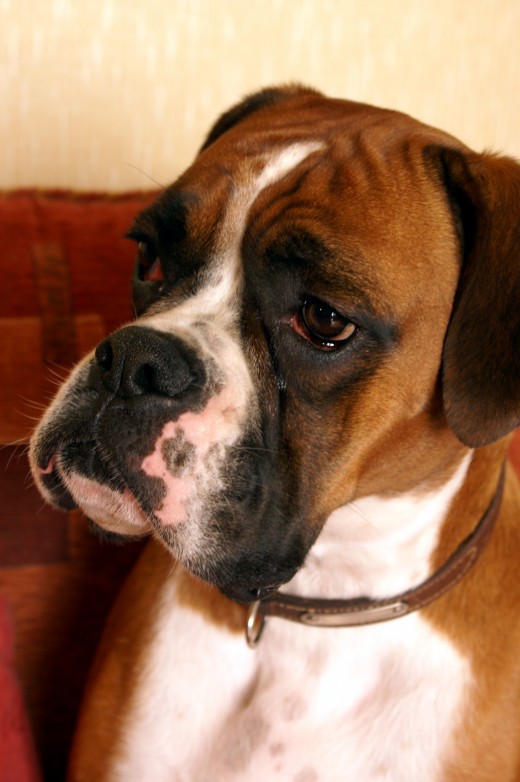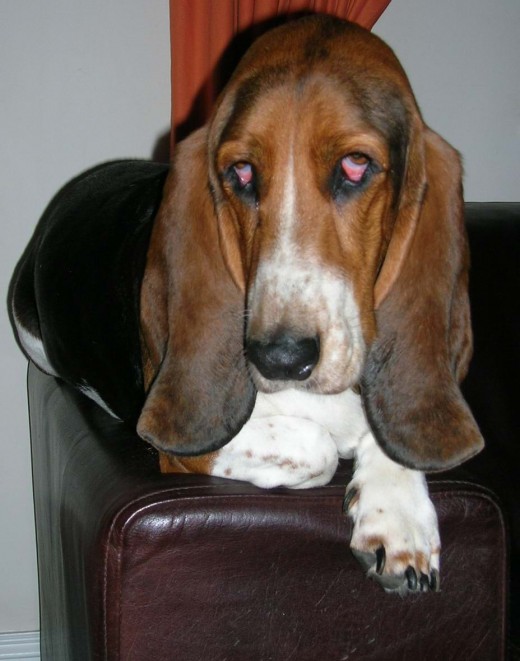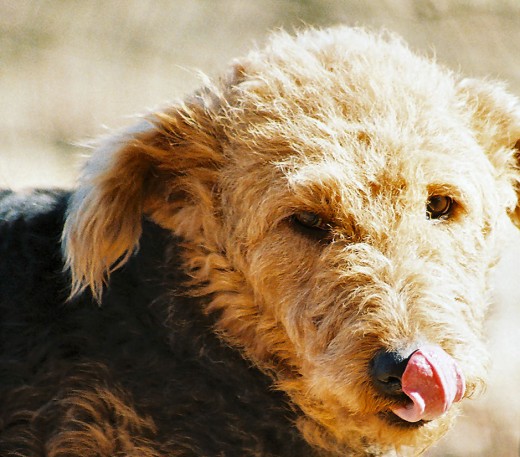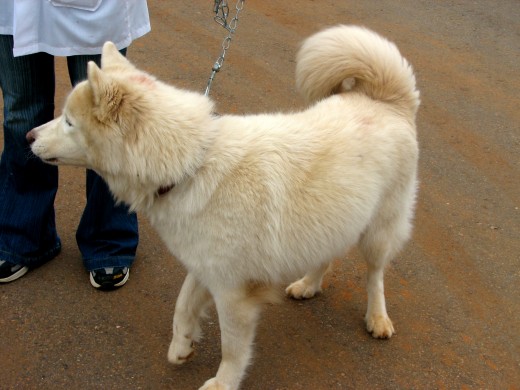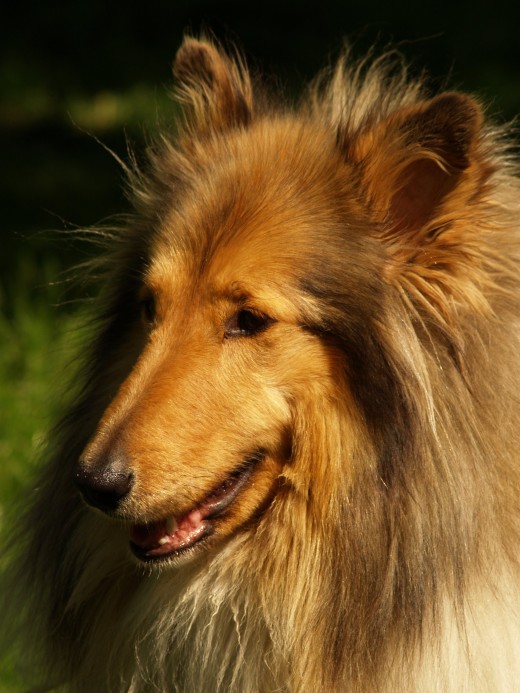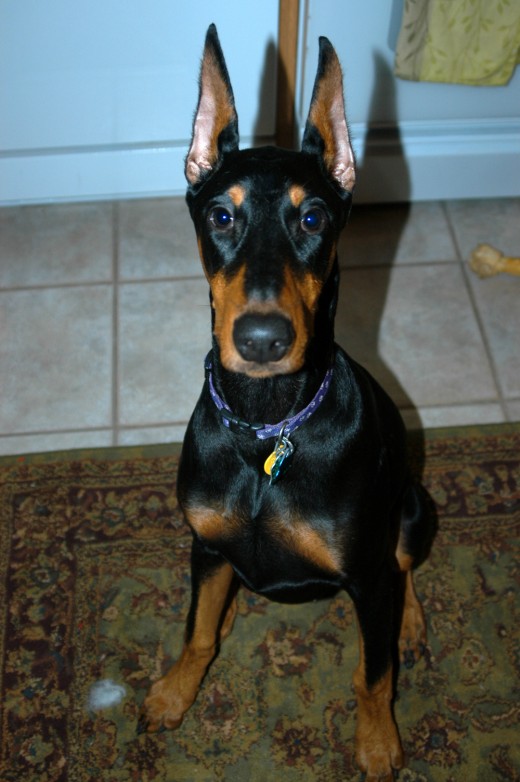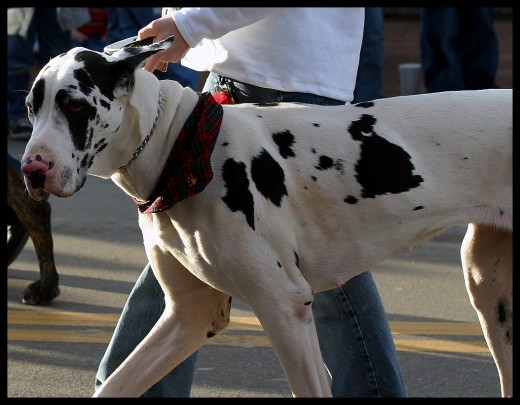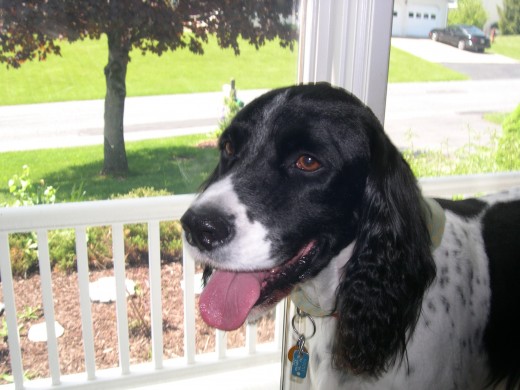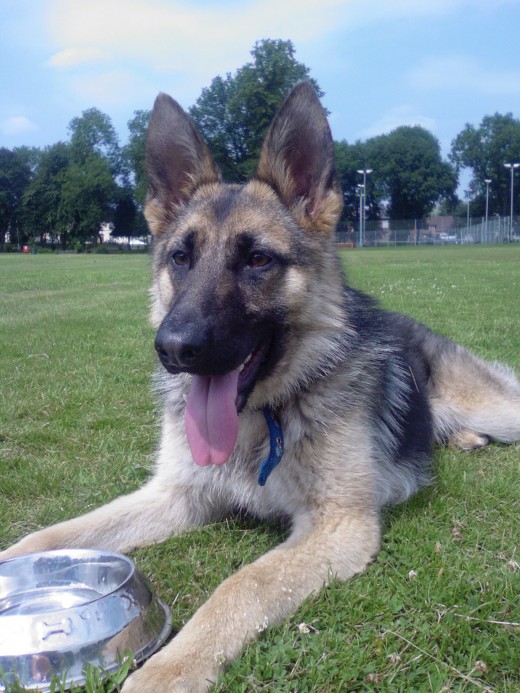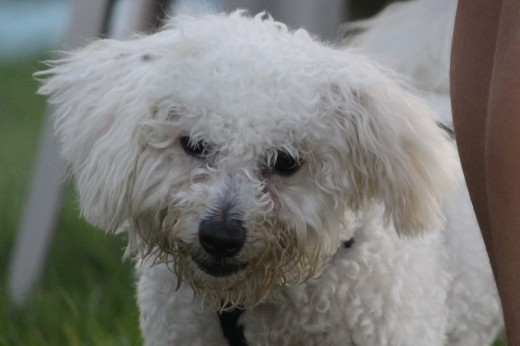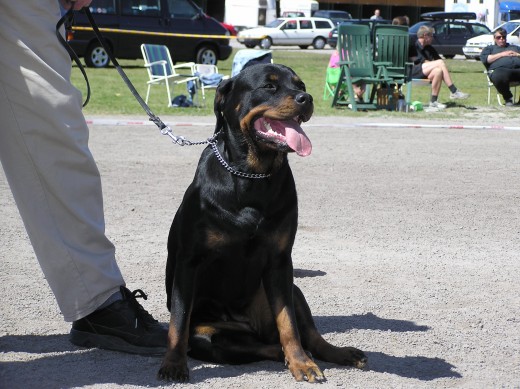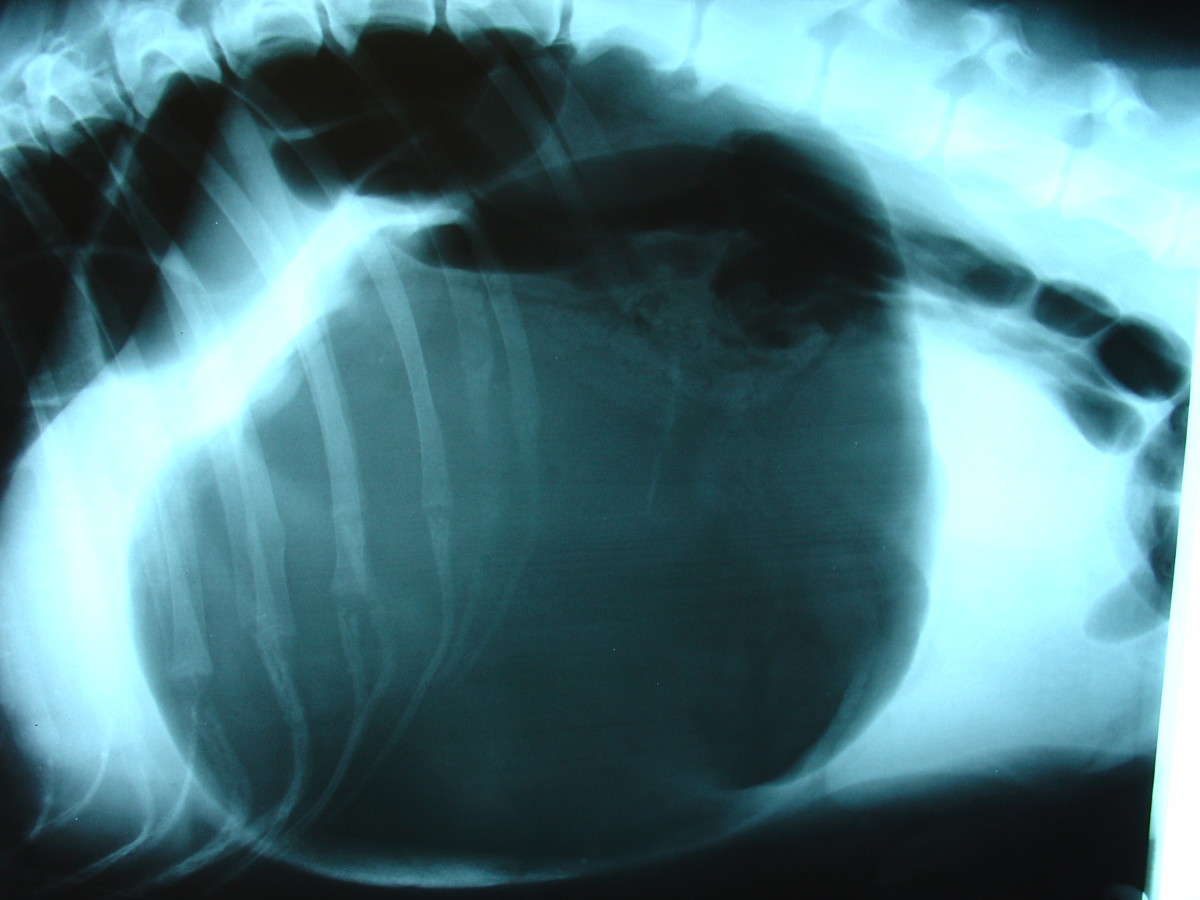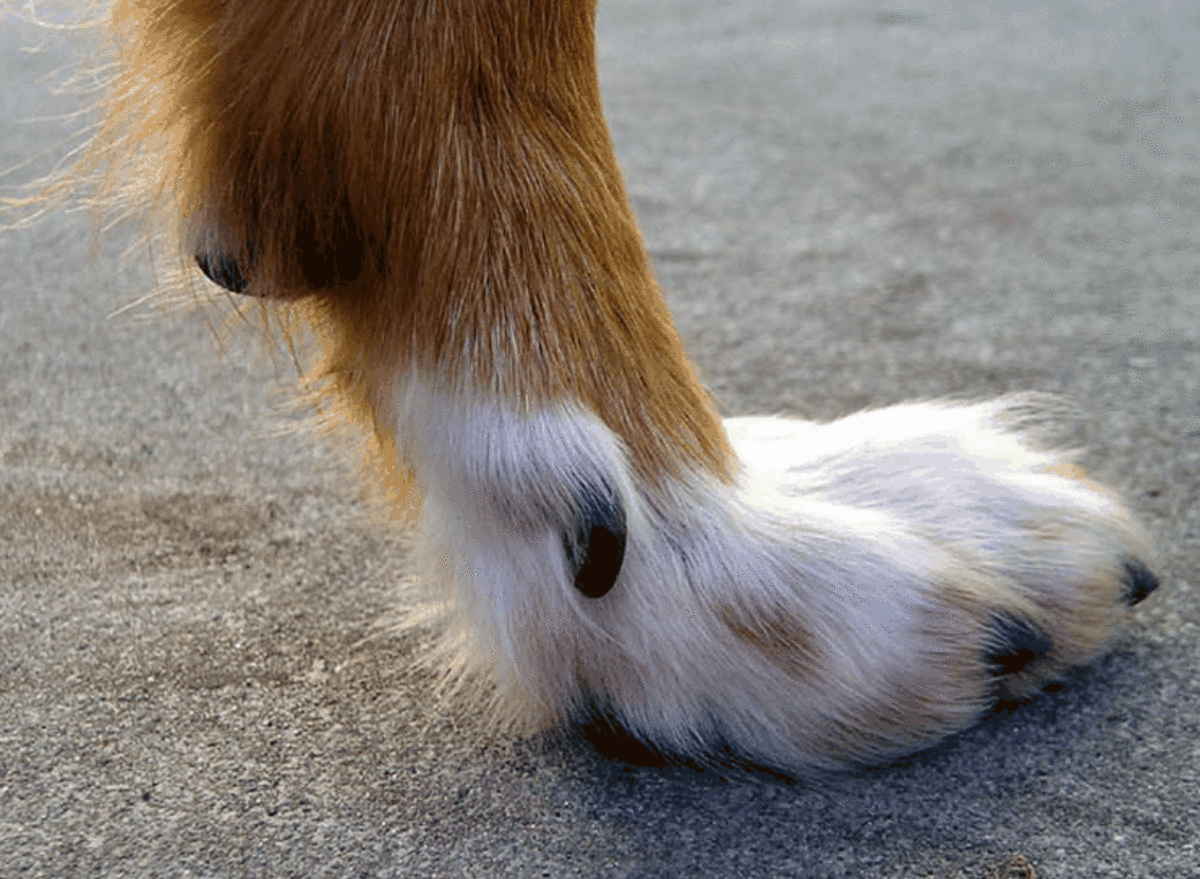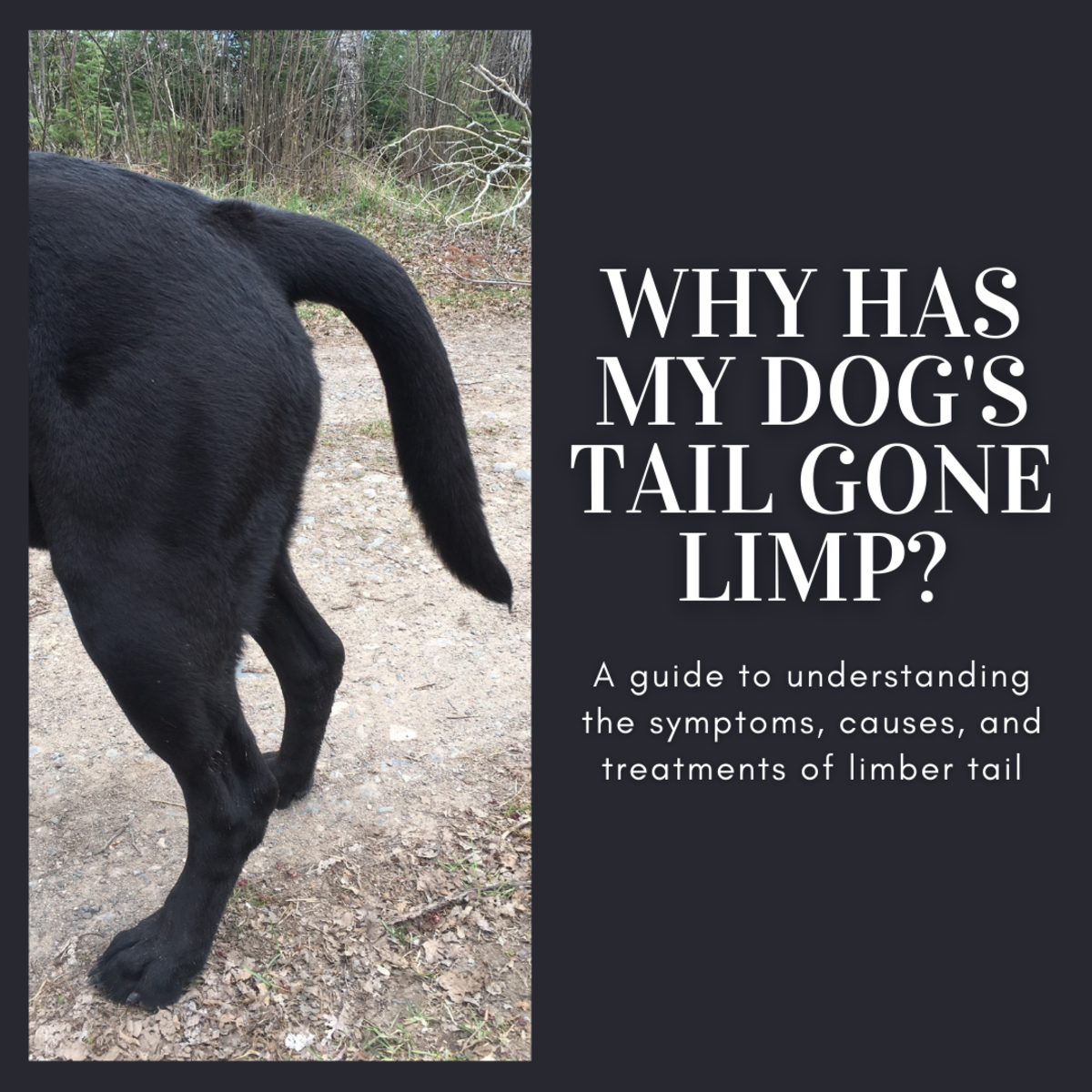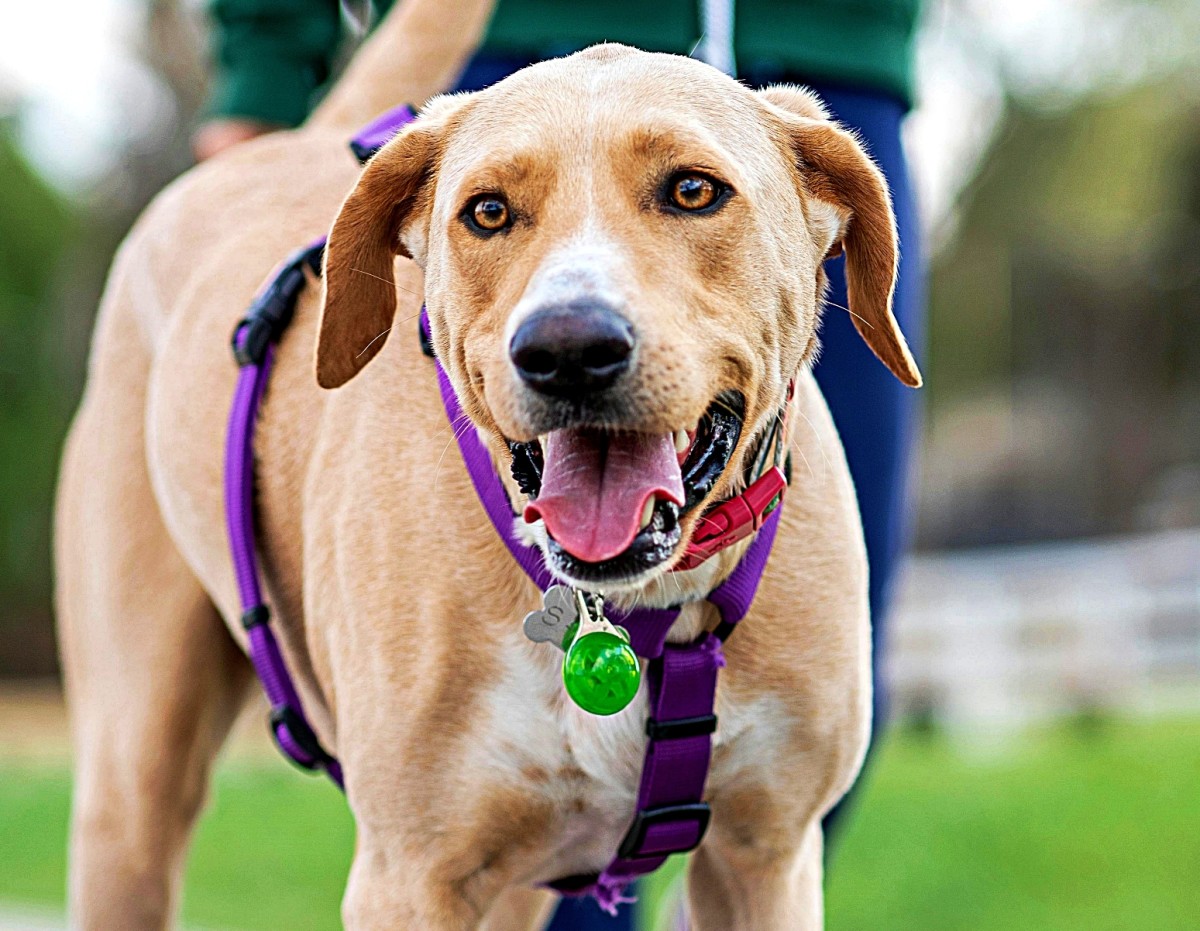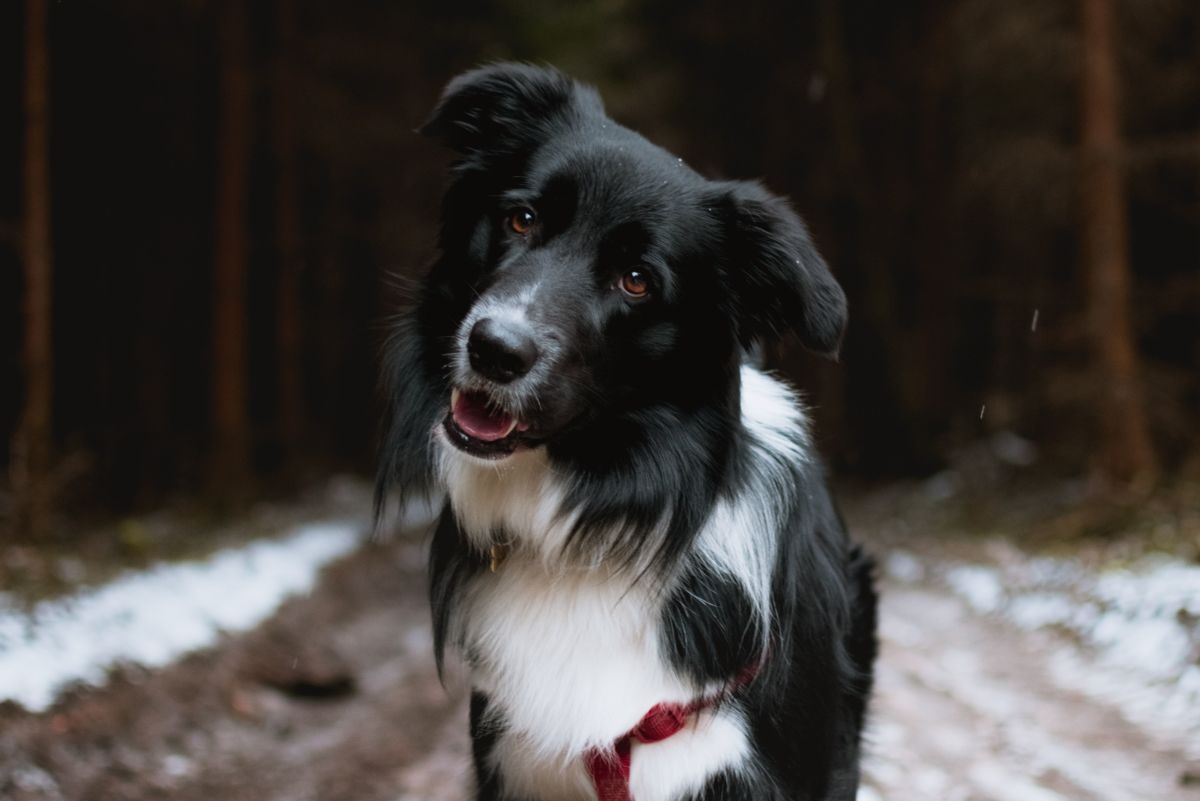How To Avoid And Prevent Dog Bloat
Bloat in Dogs - GDV - Be Prepared
Bloat, otherwise known as GDV (gastric dilatation-volvulus) happens in horses, it happens in cats and it happens in dogs. Whenever it happens and to whatever animal it happens to - it is a SERIOUS emergency. Contact a vet as soon as possible. GDV is the second highest cause of death in dogs (second only to cancer) and as many as 25-33% of dogs with GDV die.
You can take preventive steps to avoid the situation of bloat - and contrary to most people's beliefs, this medical condition does not only happen to large-chested dogs. Consider this - it happens to miniature poodles, it happens to Pekingese and it happens to the Dachshund. As well, it happens to the Alaskan Malamute, the Labrador or any retrievers, or the Great Dane.
Forewarned is forearmed. Hopefully this article will keep it from happening to your dog as I have lost a dog to bloat and it is a horrible way for an animal to die. The saying 'an ounce of prevention is worth a pound of cure' was never more true.
Some Breeds at Higher Risk for Bloat
Click thumbnail to view full-size















Tips on How to Prevent Bloat
- Provide raised feeding dishes and water dishes - although there is some controversy as some sources say to avoid these
- Avoid stress for your dog especially at feeding times
- Avoid exercise for at least 1 hour BEFORE and especially AFTER feeding
- Do not permit rapid eating
- Feed 2 or 3 meals per day instead of only 1
- Do not give water with the dog's meal - wait 1 hour
- Always have anti-bloat products available (simethicone such as Mylanta Gas, Phazyme, Gas-X) to treat gas symptoms
- Always have fresh water available EXCEPT at meal times it should be curtailed
- Eliminate excessive stress for the individual dog's personality
- Feed a high protein diet (30% at least)
- Avoid foods that have fat in one of the first 4 ingredients
- Reduce carbs as much as possible (they say that dog treats or dog bones have an excessive number of carbs)
- Feed a high quality diet
- Feed adequate amounts of fiber (at least 3.00% crude fiber)
- Add an enzyme product such as Prozyme
- Add herbs that reduce gas
- Avoid brewer's yeast, alfalfa and soybeans
- Promote acidic environment in intestines - some sources recommend 1-2 tablespoons of aloe vera gel or 1 tablespoon of apple cider vinegar after meals
- Promote friendly bacteria in intestines - acidophilus
- Don't encourage excessive rapid drinking of water as this increases the intake of air. Make sure the dog has water on demand and does not get excessively thirsty at home or on exercising
Recognizing the Symptoms
Myths About Bloat
- My dog will get better. If you suspect your dog has bloat - do not hesitate. Call your vet - and if not available - call an emergency clinic as most dogs do not survive without assistance
- Only large chested dogs can get it - case in point - miniature poodle, the basset hound and the daschund
- You can treat it - you CAN and if you know the symptoms - yes BUT
- Bloat is the second highest killer of dogs - only cancer is higher in percentages
- It will get better - probably NOT - if you suspect your dog has bloat, do not hesitate. Have home remedies on hand and know the symptoms - but have an emergency animal clinic available if your vet is not
- Err on the side of caution and take your dog in immediately. Bloat (GDV) is a serious and life-threatening condition
Links About Dog Bloat
Risks of GDV by Breed
BREED
| RISK RATIO
| RISK RANK
|
|---|---|---|
Great Dane
| 41.4
| 1
|
Saint Bernard
| 21.8
| 2
|
Weimaraner
| 19.3
| 3
|
Irish Setter
| 14.2
| 4
|
Gordon Setter
| 12.3
| 5
|
Standard Poodle
| 8.8
| 6
|
Basset Hound
| 5.9
| 7
|
Doberman Pinscher
| 5.5
| 8
|
Old English Sheepdog
| 4.8
| 9
|
German Shorthaired Pointer
| 4.6
| 10
|
Newfoundland
| 4.4
| 11
|
German Shepherd
| 4.2
| 12
|
Airedale Terrier
| 4.1
| 13
|
Alaskan Malamute
| 4.1
| 14
|
Chesapeake Bay Retriever
| 3.7
| 15
|
Boxer
| 3.7
| 16
|
Collie
| 2.8
| 17
|
Labrador Retriever
| 2
| 18
|
English Springer Spaniel
| 2
| 19
|
Samoyed
| 1.6
| 20
|
Dachshund
| 1,6
| 21
|
Golden retriever
| 1.2
| 22
|
Rottweiler
| 1.1
| 23
|
Mixed
| 1.0
| 24
|
Miniature Poodle
| 0.3
| 25
|
Courtesy of peteducation.com's article on Bloat (GDV) in Dogs
Here On Amazon
Raised Feeding Tray
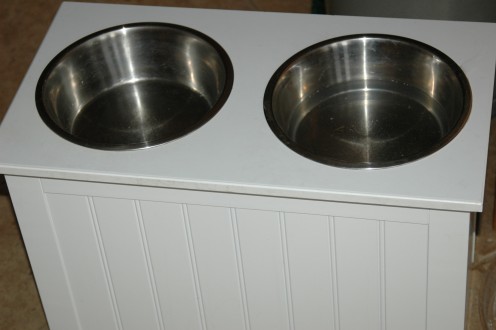
Risk Factors for Bloat
- Dogs that tend to be nervous anyway, anxious or fearful are at increased risk of developing bloat
- Dogs that tend to 'freak out' when boarded or taken to the vet - or introduced to new environments
- Male dogs tend to be twice as likely to develop bloat than females
- Neutering does not seem to effect the risk of bloat
- Dogs who are over 7 years of age are more than twice as likely to develop GDV as those who are only 2-4 years of age
- There appears to be a genetic link to which dogs get bloat more easily so that would lead one to think of their structural anatomy. The incidence of bloat appears to be related to the depth and width of the dog's chest. If both parents have relatively deep and narrow chests then it is likely that offspring will likewise have deep and narrow chests and will necessarily be at risk for the problems associated with that trait. The higher incidence of bloat seems to be related to the configuration of the dog's chest
- Dogs who are fed only once per day are twice as likely to develop GDV as those fed twice a day
- Dogs who eat rapidly or exercise soon after a meal are also at increased risk
- Dogs who have had bloat before are at extremely high risk for developing it again. This is what happened to our Molly and the second time proved fatal
- A 'lifetime' risk analysis for large or giant breeds to develop bloat is between 22 and 24%
- Dogs that display any tendency to have gastric upsets are at higher risk of developing bloat later on
- Dogs that eat a kibble that expands 'too much' are at higher risk as that same kibble expands in their stomachs. A good test according to pets1st.ca is to set aside a cup of kibble in a bowl. Add water and soak overnight. What you will see the next morning is how much that kibble 'expanded'. If it is excessive, change to another brand that will not expand as much. The higher the grade of kibble, the less it should expand
- Change diets gradually over a period of at least a week if not 2, introducing the new food in part with the old food to avoid upsetting the dog's diet
- Dogs that are high stress dogs to begin with have a much higher risk of developing bloat, especially as they age
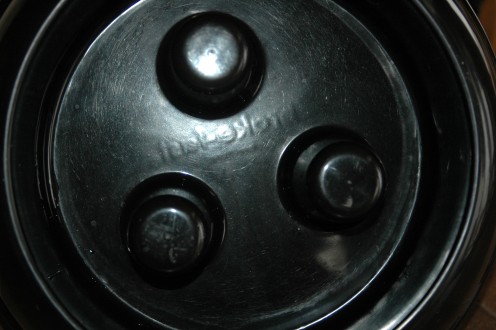
Anti-Bloat Bowl
We recently purchased this anti-bloat bowl on Amazon because our Alaskan Malamute puppy Griffin is eating at an alarming rate and we could not get him to slow down. Even hand feeding him to try to slow him down was not working. I went in search of a deterrent and I found this bowl.
Because it has raised shafts in the bowl, he has to 'work' a little extra hard to get at his food, but just that exercise makes him HAVE to slow down. He cannot inhale his food as he was once doing and there has been a marked reduction in his hiccups and his belching/burping, regurgitating food, which was beginning to become a constant problem.
Another alternative our vet suggested was to put rocks in the bowl - but they have to be LARGE rocks obviously so that the dog will not swallow them. That effectively does slow them down as well but Griffin unfortunately is one smart cookie and figured out how to 'whack' the rocks out of the way and get to the food. The anti-bloat bowl seems to work well for him.
I am still on the fence about the raised dishes for feeding. Our vet said that yes it was a good idea because our dogs are large - but then studies show that they are in fact worse for bloat and can increase the risk of a dog getting bloat. I would discuss it with a breeder or a vet if you are uncertain.
Other Great Hubs on Bloat and Dog Health
- Top Dog Health Issues
Dogs are among the most popularly kept pets around the world. They are affectionate and usually become a part of the family and are treated in that way too. While there are a variety of breeds of dogs,... - Common Dog Health Problems
Dog owners should know a bit about the various common dog health problems that their pet could get over the course of their lives. There is an historic canine folklore held and considered by people from... - Dog Health Problems and Natural Dog Remedies
Dogs are often known as mans best friend. Their loyalty earns them a special place in the hearts of their masters and because of this, dog owners take special care to make sure their canine companions... - Pet Dog Health and Bloat
Many dog owners don't know this but a condition called bloat is a leading dog killer. What causes it? Eating. More to the point, bloat results when a dog gets a build-up of gas or fluids in the stomach after... - Dog Health Care
Our dogs become part of our family, which is why we spend millions on our dogs every year. I mean, think about what all you buy your dog, many people purchase toys, food, treats, clothes, beds, and vitamins,... - Dog Health: Important Signs and Symptoms to Look For
When it comes to your dog's health, who can you trust to give you advice on when it is time to take your dog to the vet? Your dog will have many signs of what is going on with them if you are observant and... - How to train your dog not to be food aggressive
How do you deal with a food aggressive dog? This hub tries to give some advice about the underlying issues, mainly dominance problems, and provides some, hopefully helpful, tips and tricks to get you and your dog - Dog Health: What Is Bloat Or GDV?
What is bloat? In dog health, bloat or GDV in dogs is quite simply when their stomach becomes too filled with gas and they go into distress because of it. On the surface, that does not sound too... - Dog Food Bowls and Raised Feeders-Elevated Dog Feedi...
dog food bowls, elevated dog feeders, brake fast dog bowl, ceramic dog food bowl, brake fast dog food bowls, dog food bowls and feeders, raised dog feeders, plastic dog bowls, buy dog bowl, buy a dog dish, automatic dog feeders, buy a dog feeding sta - Causes of vomiting in dogs
Working at a veterinarian hospital, I have seen my fair share of many dogs affected by gastro-intestinal issues, the most common of all being vomiting. However, not many owners were able to tell the... - Causes of blood in a dog's stool
Seeing blood in your dog's stool can be a quite frightening event, perhaps mainly because we most usually associate it with cancer, but luckily in dogs the causes may be a lot less dramatic. However, as a...

